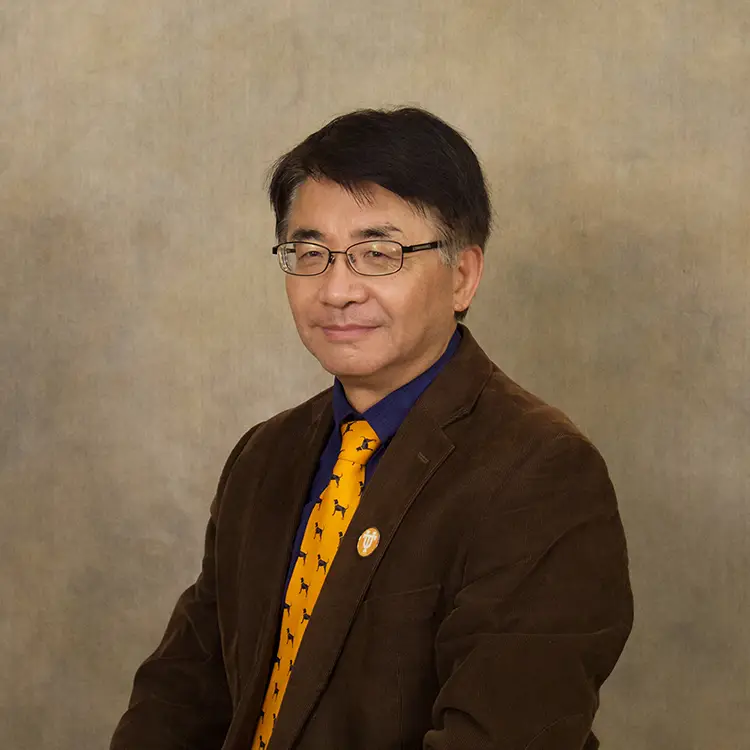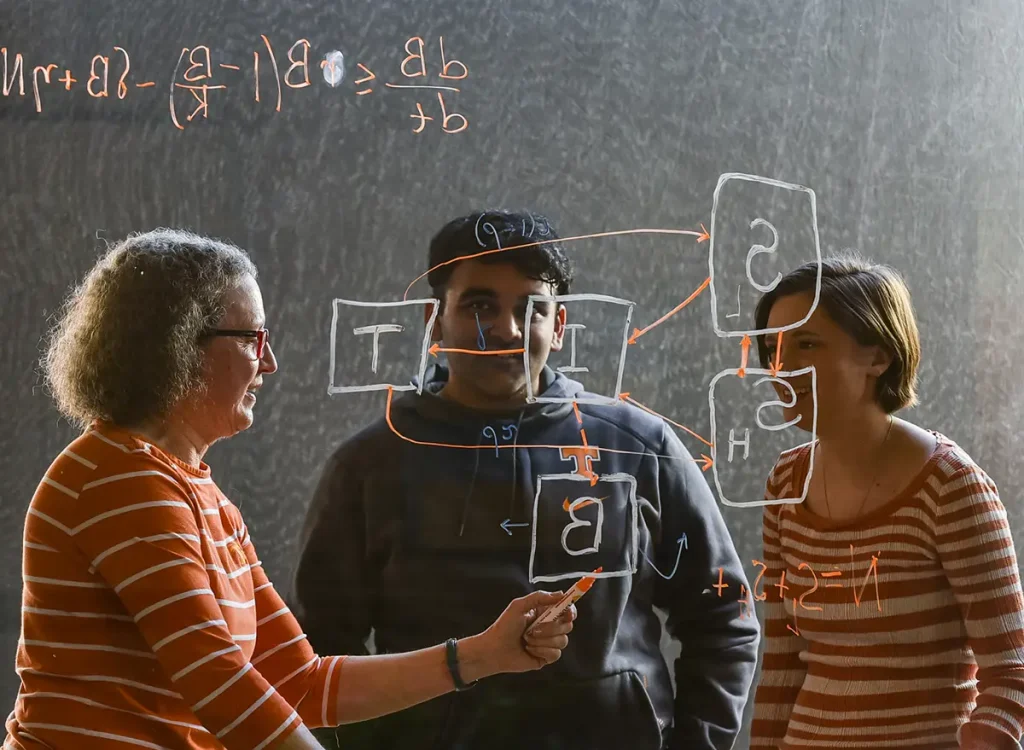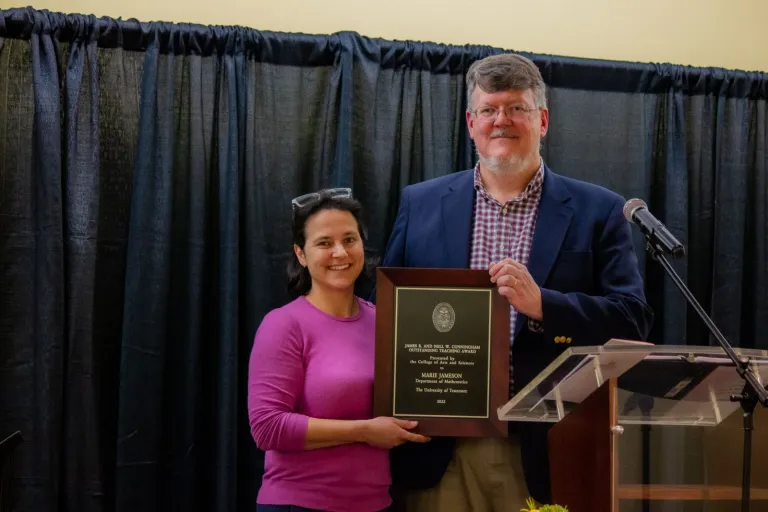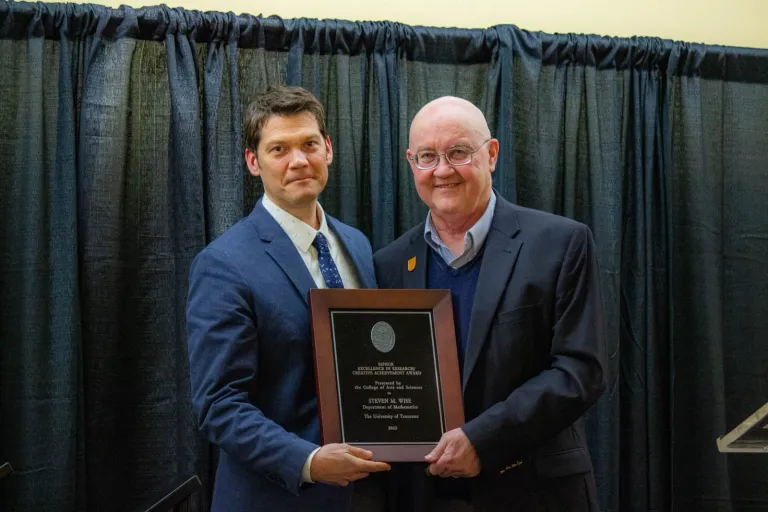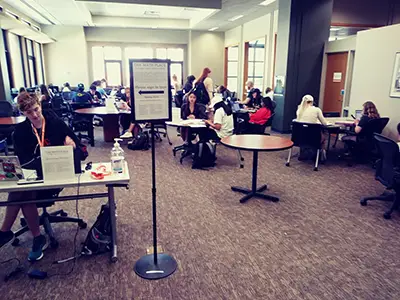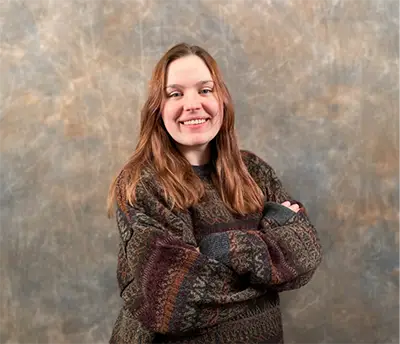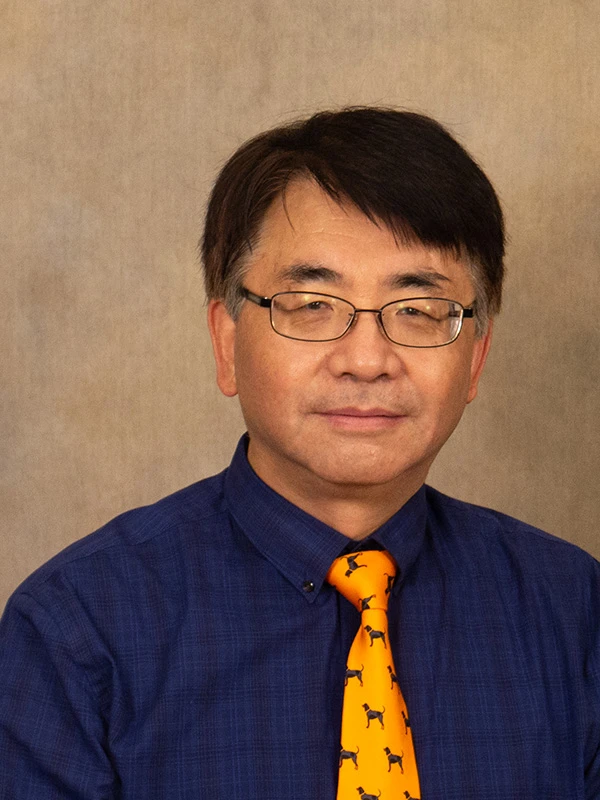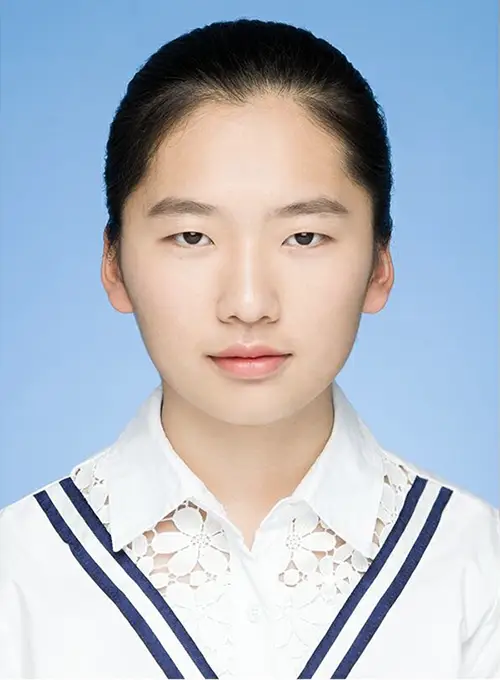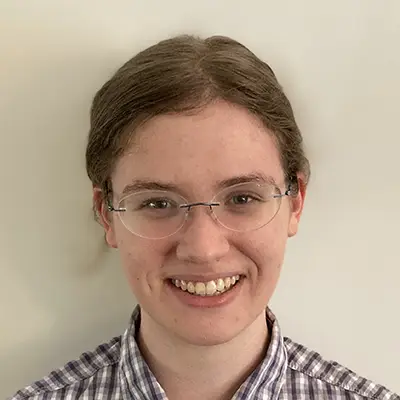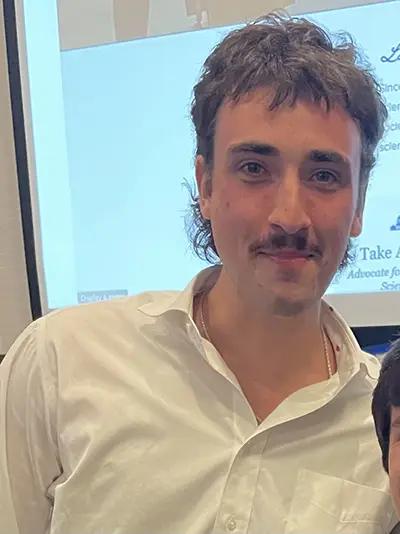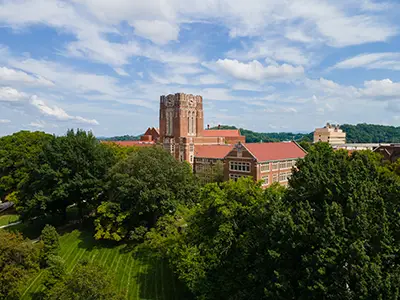Graduate Student Excels in Research, Teaching
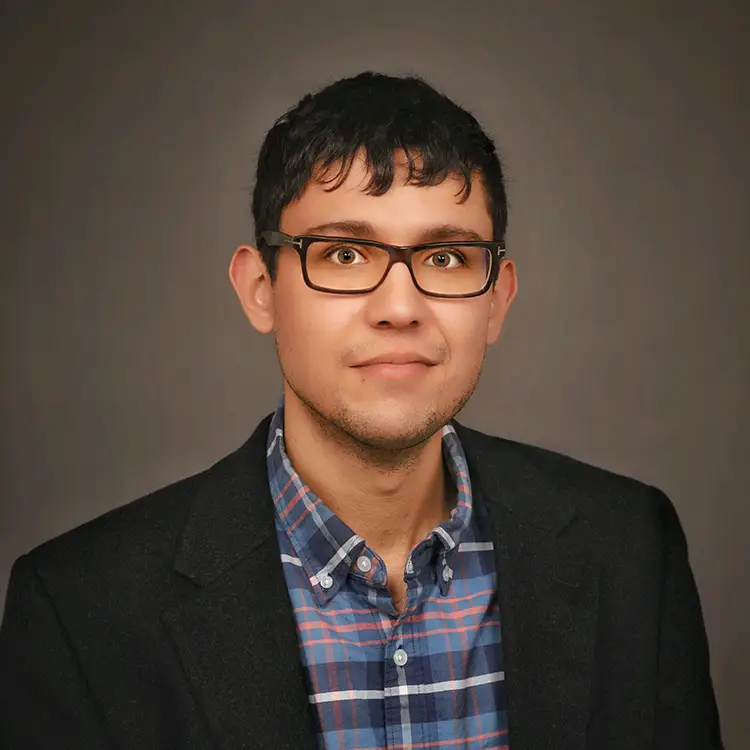
Joshua Siktar pursued his interests in both mathematical analysis and computational mathematics while earning his PhD at UT, completing the degree this year.
Siktar entered the program in the fall of 2019 and worked with two advisors, Professors Tadele Mengesha and Abner Salgado.
He wrote his doctoral thesis on some aspects of the mathematical and numerical analysis of a contemporary nonlocal model of the deformation of elastic solids.
The model involves integral equations, instead of the commonly used differential equations, and it is found to be effective in modeling the emergence of singularities, such as fractures and cracks, in materials when material bodies are subjected to an external force.
His main research focus was on the optimal control and optimal design of such models that appear in solid mechanics. In his first project, he analyzed the mathematical framework that leads to obtaining an optimal external force, used as a control, that produces an optimal displacement field that is the closest to a desired field with the minimum possible cost of applying the force. He has demonstrated rigorously that such an optimal pair of force and displacement fields exist and are unique. In the event of vanishing nonlocality, he has proved that the limiting fields are also optimal fields for the well-studied classical linearized elasticity model.
Siktar also studied the finite element-based discretization of the problem, where he proved convergence as well as the asymptotic compatibility of the scheme in the event of vanishing nonlocality. The project led to a publication in a peer-reviewed journal.
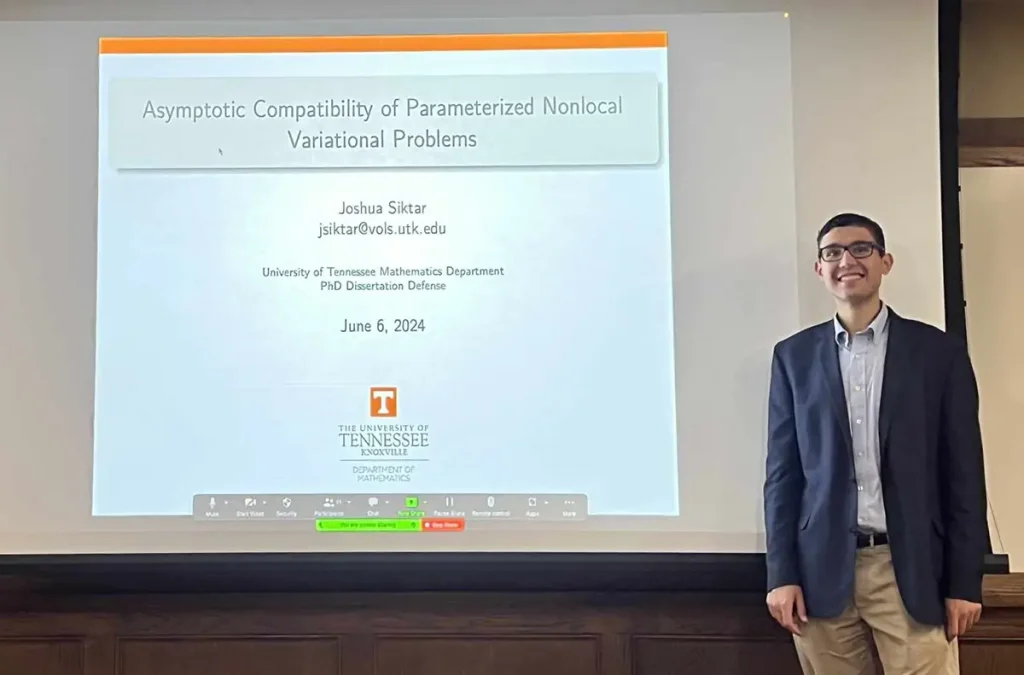
His second project was on an optimal design problem related to these nonlocal problems. This project is related to the modeling of composite materials where an arrangement of constituent materials is sought that will lead to the designing of a material with particular effective behavior. In analyzing these models, he used a variety of mathematical tools from the calculus of variations, functional and numerical analysis, and differential equations techniques, to name a few.
Siktar’s curiosity and eagerness to learn, the mark of a true researcher and scholar, motivated him to work also with Professor Xiaobing Feng on some problems related to what is known as the Lavrentiev phenomenon in the calculus of variations.
Essentially, this phenomenon appears when trying to minimize functions (energies) of a somewhat nonstandard structure. Minimizing over a slightly smaller set leads to a bigger value than the true minimum. Most physical processes are based on some energy minimization principle. For this reason, being able to identify when this phenomenon occurs and how to mitigate it bears great importance in applications.
In addition to his research, Siktar showed great interest in teaching and mentoring. While at UT he was nominated for several teaching awards, including the Math GTA Teaching Award. He guided undergraduate students in research projects that led to publications in mathematical journals dedicated to undergraduate research.
Siktar, who earned his bachelor’s degree in mathematics from Carnegie Mellon University in 2018, has accepted a postdoctoral position at Texas A&M University.
